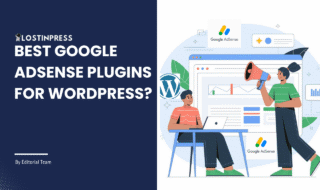When building a WordPress site, we often focus on the big elements like design, content, and plugins. But sometimes, the smallest details—like a simple slug—can make a big difference. Think of a slug as the address label for each page or post, telling visitors (and search engines) exactly where they’re headed. In this article, we’ll dive into why slugs matter more than you might think and how optimizing them can improve both your site’s SEO and user experience. Let’s explore the power behind this often-overlooked feature!
What is a Slug in WordPress?
WordPress slugs are the section of the URL that comes after the domain name and identifies a specific page or post. It is essentially a customized section of your URL that describes the page’s content. For example, the slug for the URL https://yourwebsite.com/about-us is about-us.
WordPress Slugs are crucial because they help create user-friendly URLs that make it simple for users and search engines to comprehend the page’s purpose. A well-crafted slug can improve the readability of your site’s URL and contribute to a more positive user experience.
How to Set up Slug in WordPress?
Follow these steps to edit or make changes in the WordPress slug.
Set Slug in Block Editor
- In Block Editor, click the Settings option from the menu. Then click on the Permalinks Option
- Here, you can adjust the URL slug.
- Click the Save Change after making your edits.
Why Do WordPress Slugs Matter?
1. Improved SEO (Search Engine Optimization)
WordPress slugs directly affect the SEO of your website. A well-optimized slug contains relevant keywords that search engines like Google can quickly crawl and interpret. For example, if your blog post is on “SEO Tips,” slug-like/SEO-tips will be more successful than something generic like /post123.
By using a simple yet useful WordPress SEO slug, you increase the chance that search engines will correctly categorize your content and rank your work higher in the search results.
2. Better User Experience
Users find it easier to understand what they are clicking on when a URL is clear and easy to read. A slug-like/best-wordpress-plugin is simple and informative, whereas a URL with random characters (/page?id=456) can confuse users. Using a suitable slug in WordPress will make your website more user-friendly.
3. URL Structure
The structure of your URL also contributes to the organization of your content. A well-organized slug can give context to your webpage, helping both users and search engines understand how different pages are related. This is especially useful for categorizing and tagging content, making navigation more intuitive.
Common Mistakes with WordPress Slugs to Avoid
- Using Default Slugs: WordPress generates default slugs that can be long and unappealing. Always modify them so that they are more readable and SEO-friendly.
- Using Too Many Keywords: Although keywords are important, using too many of them in your slug can make it appear spammy. To make it seem natural, limit it to one or two relevant terms.
- Changing Slugs After Publishing: Changing a slug after your page or post is live can lead to broken links. Set up a 301 redirect when changing a slug to avoid losing traffic or SEO value.
Conclusion
WordPress Slugs may seem like a small detail, but they are vital for both user experience and SEO. By optimizing your WordPress slug, you can create cleaner URLs that appeal to both search engines and visitors. A well-structured slug not only enhances the readability of your URL but also contributes to your website’s success. So, next time you’re creating or editing a post, take a moment to craft a slug that represents your content effectively.
Q: What is a slug in WordPress?
A slug is the part of a URL that comes after your domain name and helps identify specific pages or posts on your WordPress site.
Q: Why are WordPress slugs important for SEO?
WordPress Slugs assist search engines in grasping the content of your page. An effective slug, containing relevant keywords, enhances your SEO and simplifies content discovery for users.
Q: Does changing a WordPress slug affect my site’s links?
Yes, altering a WordPress slug changes the URL of the post or page. If you have shared the original link, establish a redirect to prevent broken links or 404 errors.



